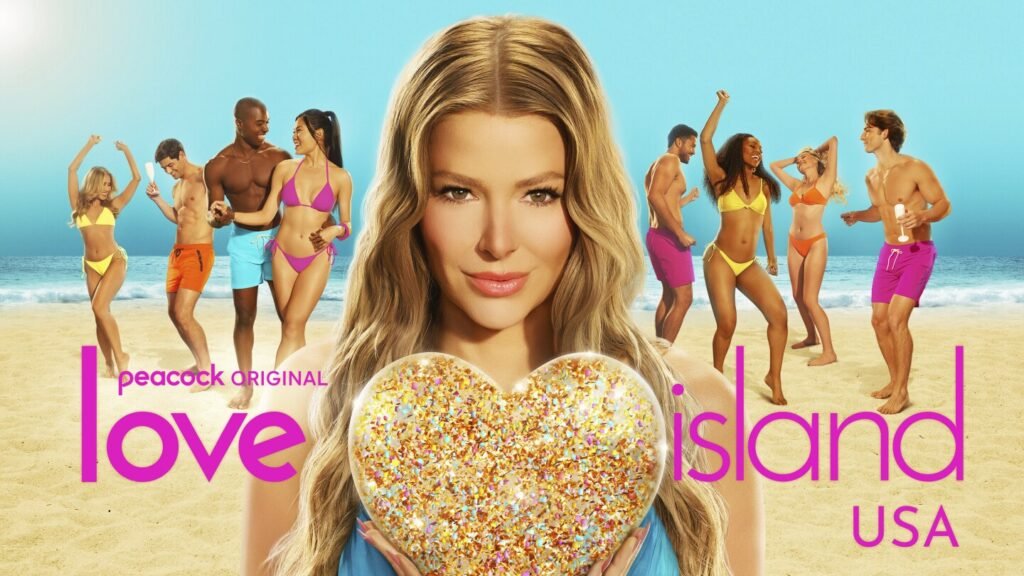It used to be that dating was as simple as deciding between dinner, a trip to the movies or an arcade. Now, understanding the dating scene has become intermingled with smartphones, matchmaking apps and one’s ability to navigate thorny social issues like racial preference in a mate.
“Love Island,” a widely popular international reality television franchise, is emblematic of the complexities of modern dating. It has also sparked heated discussions among fans about the desirability of Black women and darker-complexioned people both on and off air.
The show, which aired the finale of the seventh season of its U.S. version Sunday and is airing the 12th season of its U.K. version, casts conventionally attractive “islanders” who are generally in their early to late 20s for a six- to eight-week stay in a luxury villa. Men and women compete for long-lasting relationships and a cash prize.
But as the show’s daters face challenges meant to test their bonds, as well as elimination by villa mates or by fans’ vote, notions of who is and isn’t desirable frequently come up for viewers and contestants alike. In the end, many fans are left with the perception that racial bias, colorism and misogyny are especially inescapable for Black women on reality dating shows.
“The diversity in the U.K. one is terrible,” said Oghosa Ovienrioba, a content creator from London. “It’s very anti-Black.”
It’s not simply that Black women are picked last for coupling or eliminated first on the U.K. or U.S. versions of the show. Many fans say there’s a recurring theme of suitors dumping or ditching Black female contestants when there is a fairer skinned option. Black female contestants have also complained of not doing well on the show when they don’t lower their standards for intimacy with a suitor, as though they are lucky to even been considered dating material among more desirable mates.
Even with these viewer frustrations, Ovienrioba said she prefers “ Love Island USA.”
“I feel like the dark skin Black women on that show always find men who fit their vibe, who respect them, who are attracted to them, desire them, treat them like queens,” she said.
In the U.K. version, fans have counted multiple instances where Black female contestants were left as the last choice when couples were picked, or they were first to get eliminated and dumped from the villa. Many have also noted that it took eleven seasons before a darker-complexioned Black woman was declared the winner.
Now in its 12th season, Love Island U.K. is still dogged by allegations of male contestants’ bias against Black women. After 23-year-old Alima Gagigo, a Black woman, chose to couple up with 26-year-old Blu Chegini, a white man, he said, “I’ll be honest, on paper, you’re not my type.”
Gagigo responded, “Of course,” as if those were words she was not surprised to hear.
There is no evidence that Chegini was referring to Gagigo’s race or ethnicity. But the exchange was enough to confirm what some in audience felt was an implicit bias against Black women in the villa.
“Love Island’s only stipulation is that applicants are over 18, single and looking for love. Our application and casting process is inclusive to all and we are always aiming to reflect the age and diversity of our audience on the show,” a show spokesperson for “Love Island U.K.” said.
JaNa Craig, a contestant on “Love Island USA’s” beloved sixth season, which aired last summer, landed a spot in the final four couples by the end of the competition alongside Kenny Rodriguez, who entered the villa 13 days into the season. Her bubbly personality made her a fan favorite.
Although she initially worried about how viewers felt about her, the positive audience reaction culminated in her being deemed the “baddest girl in Love Island history,” which means hot or beautiful in slang terms. Still, she felt some male contestants may not have been interested in her and Serena Page, another Black female contestant, because of their skin complexion. Page went on to win that season of “Love Island USA.”
